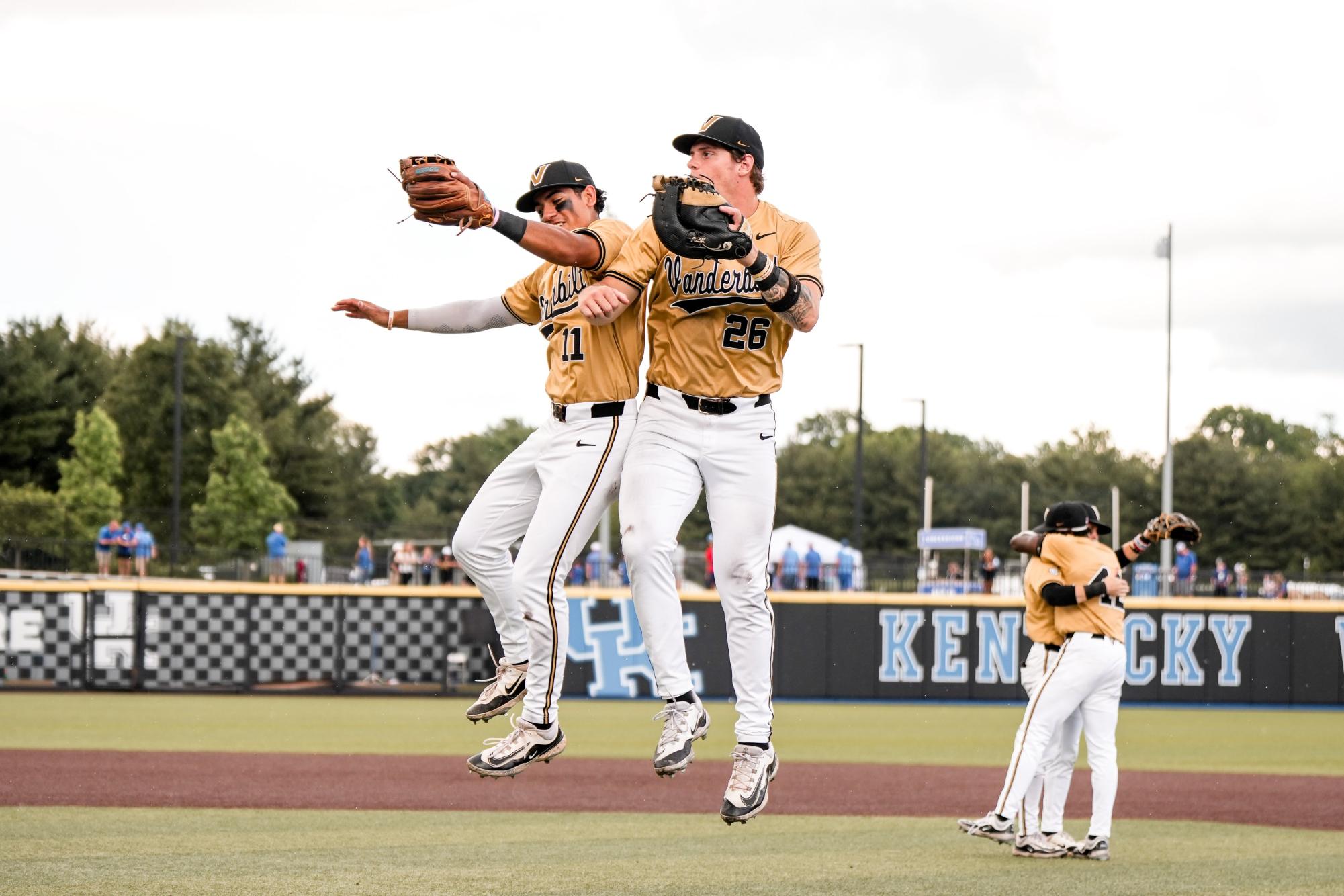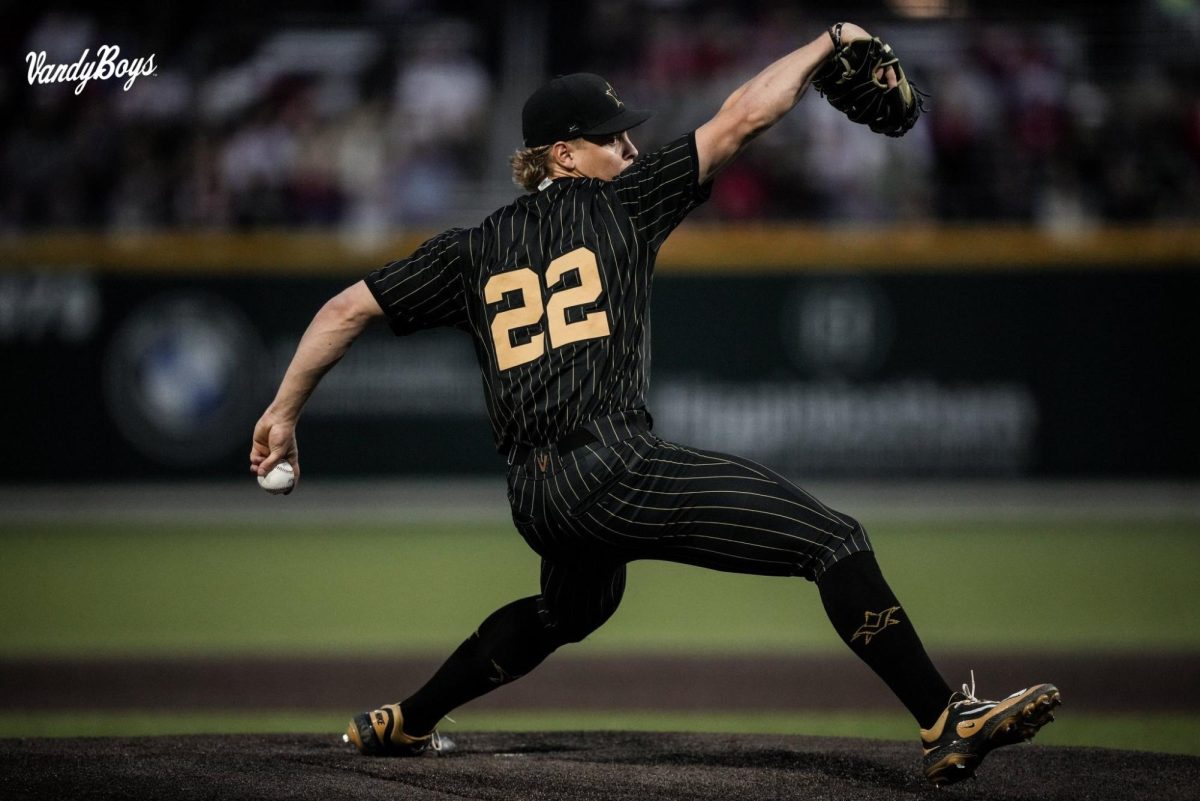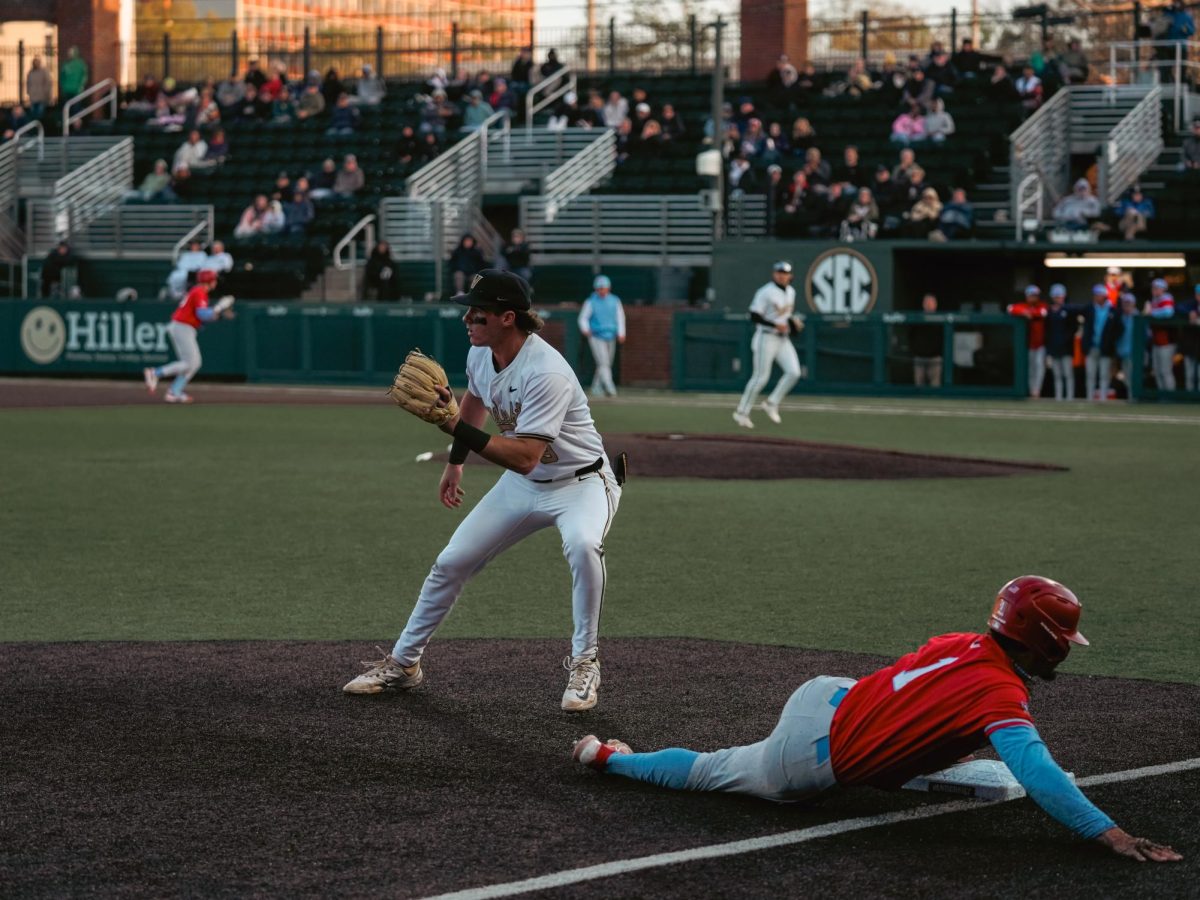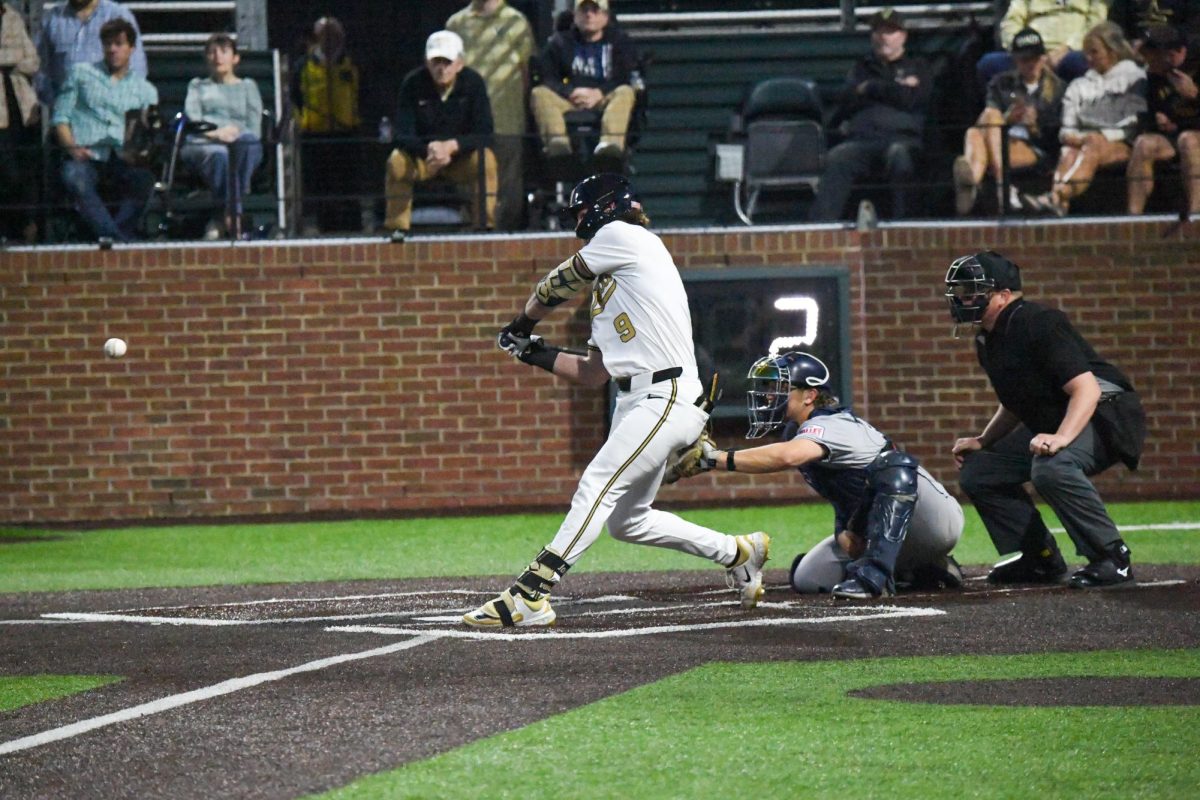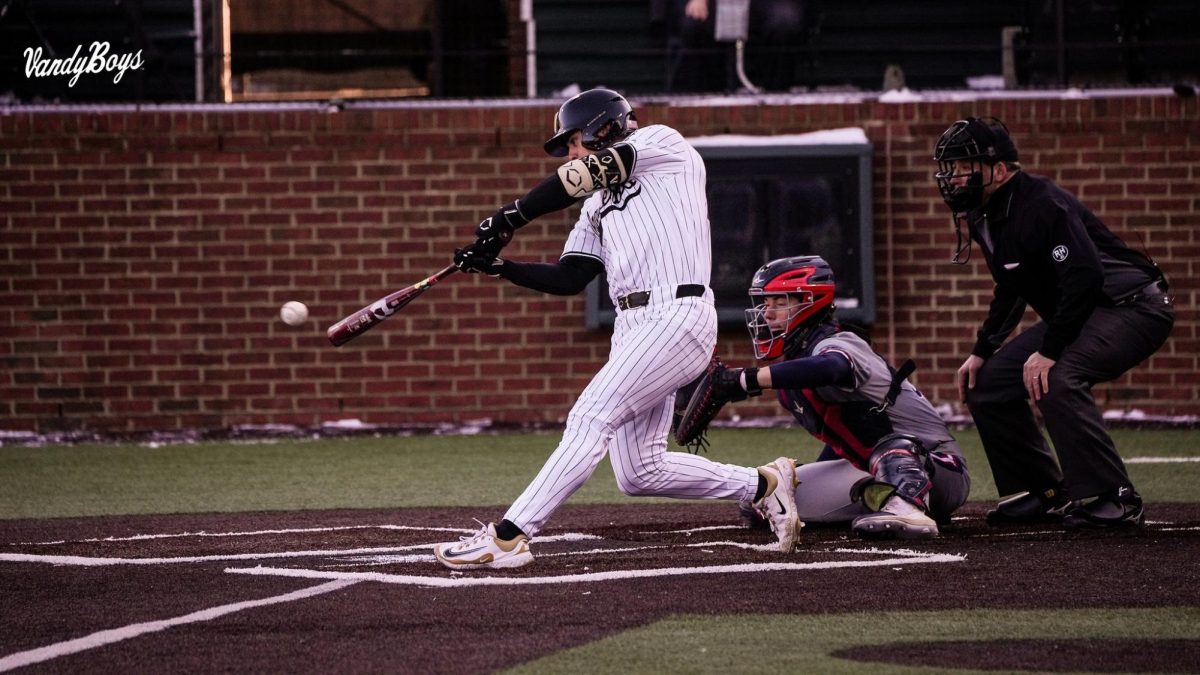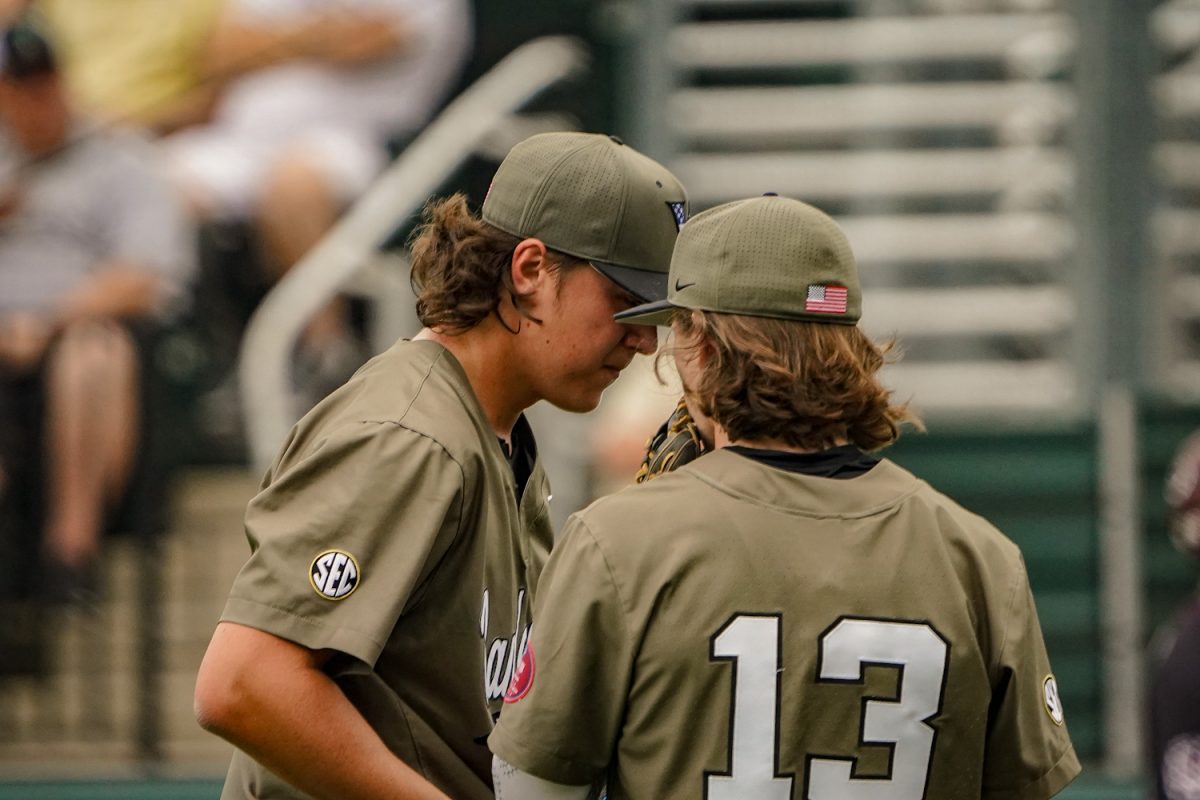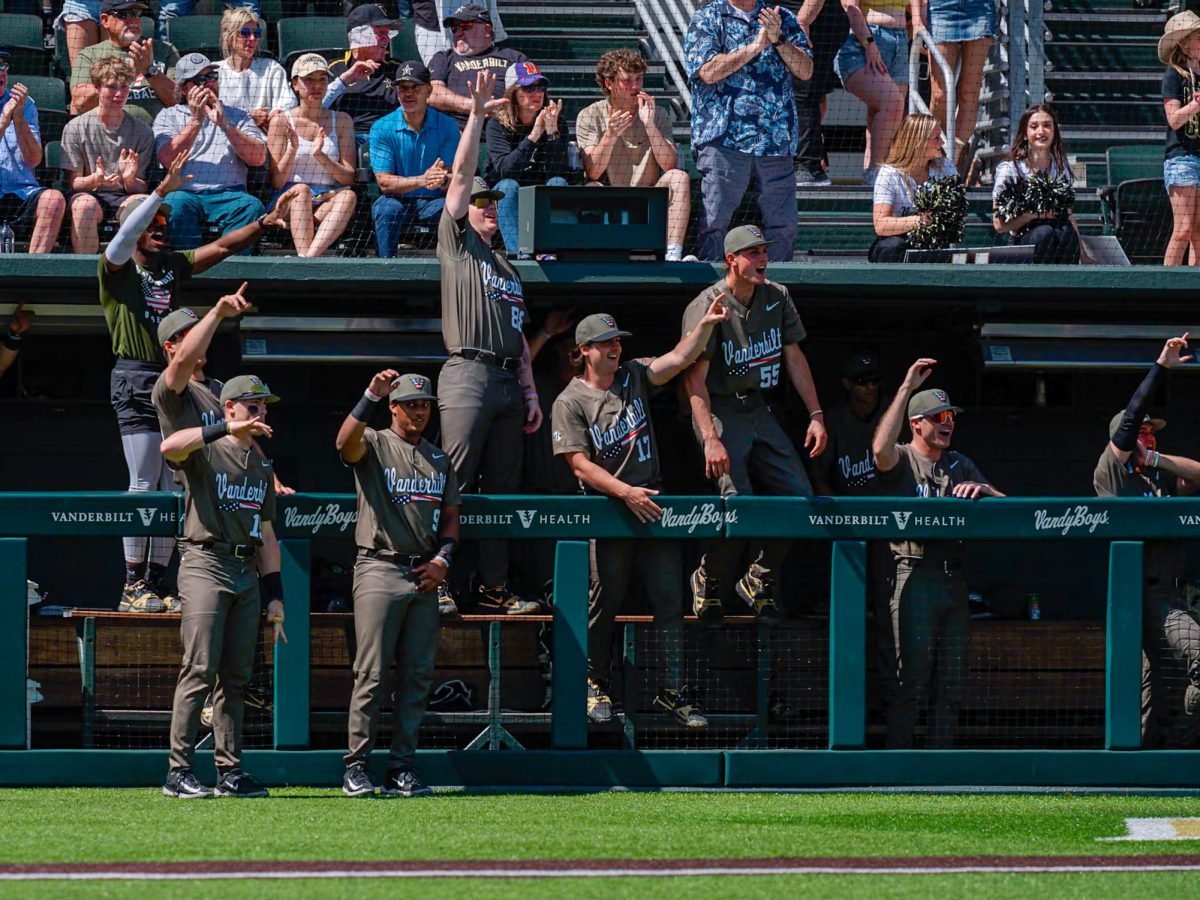After winning just one of three games against No. 1 Tennessee last weekend, Vanderbilt Baseball looked to finish the regular season on a positive note against No. 2 Kentucky. With just 12 SEC wins before the weekend, the Commodores sat firmly on the NCAA Tournament bubble. They needed at least one win to give themselves a chance at making it to the NCAA Tournament for an 18th consecutive year.
The Commodores dropped the first two games in Lexington, losing 5-10 and 7-17, but took the finale by a score of 12-4 to keep their postseason hopes alive. Vanderbilt holds an overall record of 35-20 and a conference record of 13-17, putting it in a tie for fourth in the SEC East. The Commodores are unranked nationally but are No. 27 and No. 19 on the RPI and KPI index lists, respectively. Vanderbilt is projected as a “last four in” team for the NCAA Tournament, according to D1 Baseball.
Despite the series loss, Vanderbilt can gather plenty of takeaways from this weekend as it prepares for postseason play. With their NCAA Tournament hopes now hanging in the balance, the Commodores must reflect on what needs improvement to secure a spot at an NCAA Regional later this month.
Three up.
The rise of JD Thompson
JD Thompson has been the definition of consistency the past two weekends. After throwing six shutout innings against Tennessee, Thompson posted another strong start in Lexington, giving up just two runs in his 4.2 innings pitched.
The Texas native flew under the radar heading into this season, starting just one game in 2023. Many expected him to be either an option out of the bullpen or an occasional midweek starter. However, he has cemented himself as a reliable weekend starter for Vanderbilt. He now holds a 3.19 ERA on the season, good enough for second-best on the team, striking out 61 batters across just 37.1 innings. With a bullpen plagued with injuries, Vanderbilt needs starting pitchers that can go the distance. Thompson is doing just that, pitching far enough into games where head coach Tim Corbin is using only one or two relievers.
Thompson’s ability to pound the strike zone is what makes him such an efficient pitcher. While his velocity tops out at around 92-93 mph, his fastball has plenty of arm-side run and consistently fools batters at the top of the strike zone. In fact, heading into the finale against Kentucky, his fastball generated a whiff rate of 38%, a rate far above the average of 18.6% for Division I pitchers in 2023.
Thompson has earned his place as a weekend starter and shows no signs of slowing down. While the lefty is just a sophomore, his ability to pitch his way out of tight jams and prevent runners from scoring shows maturity beyond his years. His continued improvement could help him become the ace that Vanderbilt’s pitching staff needs to make a deep postseason run.
Veteran hitters step up
Contrary to what we’ve seen the past few weeks, Vanderbilt didn’t lose its series against Kentucky due to a stagnant offense. In fact, the Commodores tallied 37 hits across the three games in Lexington. The offense was particularly potent in the final contest, where Vanderbilt gathered 12 runs off of 16 hits to dominate Kentucky and secure a comfortable victory. Heading into the postseason, several of Vanderbilt’s veteran offensive pieces, such as Jonathan Vastine, Matthew Polk and Calvin Hewett, are trending in the right direction.
Vastine, the leadoff hitter, made some noise over the weekend, going 6-for-16 at the plate and smashing a first-pitch home run in the series’ first game. He went 3-for-5 on Friday night and now boasts nine home runs on the season, second-best on the team. Vastine’s on-base percentage is .398 this season, making him a reliable start at the top of the batting order.
Hewett also had a fantastic weekend, going 3-for-4 at the plate on Saturday while racking up 3 RBIs. The veteran outfielder, hitting in the nine-slot, has the batting power and leadership needed to bolster a Vanderbilt lineup that has failed to generate offense at the bottom of its order. In an offense that has several freshmen and sophomores, the veterans have been stepping up to steer the ship.
Miller Green… the closer?
After Nick Maldonado’s departure to the MLB Draft at the end of last season, many wondered who would be the closer to fill his shoes. Several candidates have emerged throughout this season, including Greyson Carter, Brennan Seiber and Nashville native Miller Green.
In Vanderbilt’s game three win, Green perfectly executed his role as a closer. After Thompson and Devin Futrell combined for seven full innings of work and allowed four runs, Corbin turned to the freshman to finish the game. With the Commodores postseason hopes likely riding on the win, Green pitched two great innings, giving up just two hits and no earned runs while striking out three batters. It seemed the pressure of the situation was no match for Green, who handled it like a veteran.
Green’s 3.00 ERA is the lowest on the team and represents a strong freshman arm that can give Corbin quality innings. With injuries sidelining more experienced relievers, such as Andrew Dutkanych IV, younger pitchers will get more reps. For Vanderbilt to succeed this late in the season, the freshmen must step up to the challenge, especially in high-leverage situations.
Three down.
Pitching on the road
This topic has been widely covered in previous baseball columns, but the point needs to be made again: Vanderbilt pitchers struggle on the road. The Commodores’ starting arms, particularly Carter Holton and Bryce Cunningham, looked out of sorts on Thursday and Friday, recording a combined three innings pitched. These are meant to be Vanderbilt’s strongest pitchers, yet they fail to give quality starts late into games.
Cunningham gave up five hits and seven runs in just 2.2 innings pitched, providing little breathing room for a thin, inexperienced bullpen. He recorded just one strikeout and dug a hole too deep for the offense to climb out of. Similarly, Holton pitched just 0.1 innings and gave up three hits and five runs. At home, Cunningham holds an ERA of 2.84, but on the road in the SEC, it rises to 11.50. This staggering difference must be addressed by the coaching staff. The Commodores will be away from Hawkins Field for the rest of the season, so Cunningham must learn to shake off the pressure he feels at unfamiliar stadiums.
Unfortunately for Vanderbilt, it wasn’t just the starting pitching that struggled in Lexington — the bullpen couldn’t contain the potent Kentucky offense. While the starting pitchers did most of the damage early in games, the Commodores’ relief pitchers also failed to keep the Wildcats off the board. A combination of veterans Carter, Ryan Ginther and Sam Hliboki gave up 8 hits and 11 earned runs in 5.1 innings pitched after the removal of Holton in game two. Vanderbilt has prided itself on strong pitching for years, but many improvements are needed to win more games this season.
Walking it out
Vanderbilt’s pitching staff not only surrendered 34 hits in Lexington, they also walked 18 batters and hit another 12 over the weekend. That marks 30 free bags for Kentucky, a terrifying number for Vanderbilt as it gears up for the SEC Tournament. Vanderbilt pitchers struggled with command all weekend, getting behind in counts quickly. On Friday night, Cunningham, Carter, Ginther, Hliboki and Levi Huesman hit eight batters and walked seven. While the Commodores had more hits than Kentucky, free bases allowed the Wildcats to run-rule them. These are disastrous stats for Vanderbilt’s pitchers, as they are both self-inflicted and avoidable errors. Pitching coach Scott Brown must emphasize the importance of getting ahead in counts and keeping runners off base.
The Bubble
Vanderbilt’s NCAA Tournament hopes are up in the air. The Black and Gold currently hold 13 SEC wins, but so do four other conference foes. In the past, 13 SEC wins has been the magic number to make it to the NCAA Tournament, but this year, that might not be enough to secure a spot.
Six SEC teams hold winning records in the conference and are pretty much guaranteed to make the Tournament. However, five SEC teams sit at 13-17. The SEC has never had 11 teams in the NCAA Tournament, so this is uncharted territory. Team selection will likely come down to head-to-head results, play in the SEC Tournament, strength of schedule, and bid stealers. For Vanderbilt, its RPI places it fourth among the five schools tied, but its head-to-head wins over Florida and LSU should be an advantage in the eyes of the committee. It remains possible that 11 SEC schools could make it, and plenty of baseball remains to be played before it’s decided which schools make it to the NCAA Tournament. With Decision Monday quickly approaching, Vanderbilt will need a little luck, and hopefully a few wins in Hoover, to see if it’s headed to the NCAA Tournament.
Vanderbilt will face Florida in a crucial matchup in the first round of the SEC Tournament on Tuesday, May 21 at 4:30 p.m. CDT.



